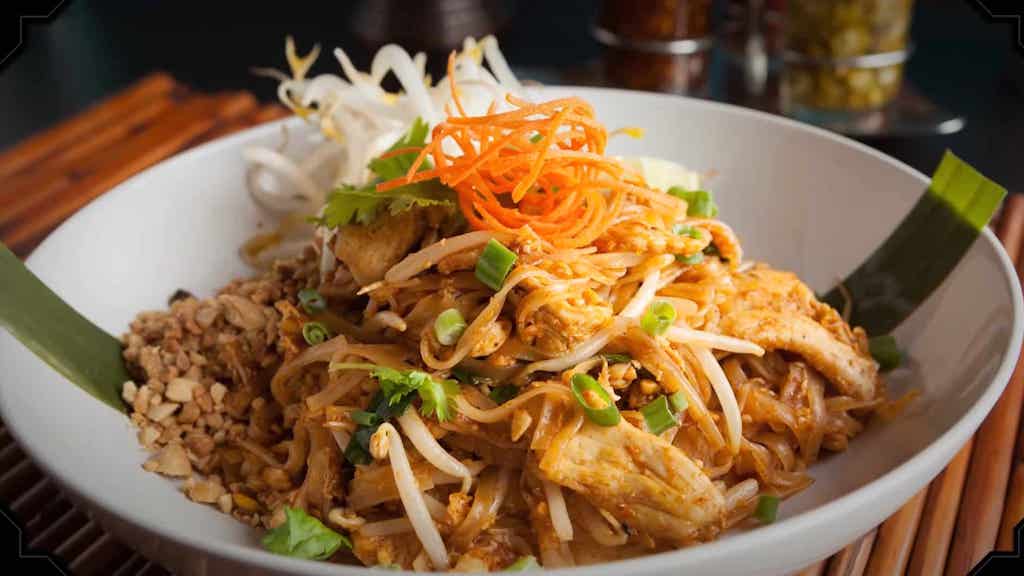The Gastro-Diplomatic History of Pad Thai
In a savory episode of the Mental Floss series Food History, host Justin Dodd explains the gastro-diplomatic history of Pad Thai. This tasty noodle recipe was once considered the official dish of Thailand.
Pad Thai is probably Thailand’s most widely known dish around the world, but it wasn’t even part of the country’s cuisine until the 1930s. That’s when Thai Prime Minister Plaek Phibunsongkramh—or Phibun—rose to power. …Phibun made it his mission to create a unified national identity that would bring his people together. His efforts included changing the name of the country from Siam to Thailand, introducing a new national anthem, and promoting a new national dish: pad thai.
The dish also became a bit of a political pawn in terms of national identity, even though the ingredients are mainly non-Thai in origin.
Mung beans were originally cultivated in India, and peanuts were first grown in South America. Tamarind comes from tropical Africa and chili peppers from South and Central America. Fish sauce is another common item used in pad Thai…has its own complicated international history. Of course, the fact that pad Thai uses global ingredients doesn’t make it any less Thai.
Later in the 20th Century, the government began funding Thai restaurants worldwide that served Pad Thai to promote tourism and strengthen their international standing.
By opening Thai restaurants around the world, Thailand hoped to boost its international image. People who fall in love with Thai food at home are more likely to visit the country as tourists, infusing money into the local economy. …The campaign was also a subtle way for Thailand to strengthen its relations with foreign nations, a tactic known as gastrodiplomacy. So Thailand didn’t just share its delicious food with the world as an act of altruism…

via The Awesomer






